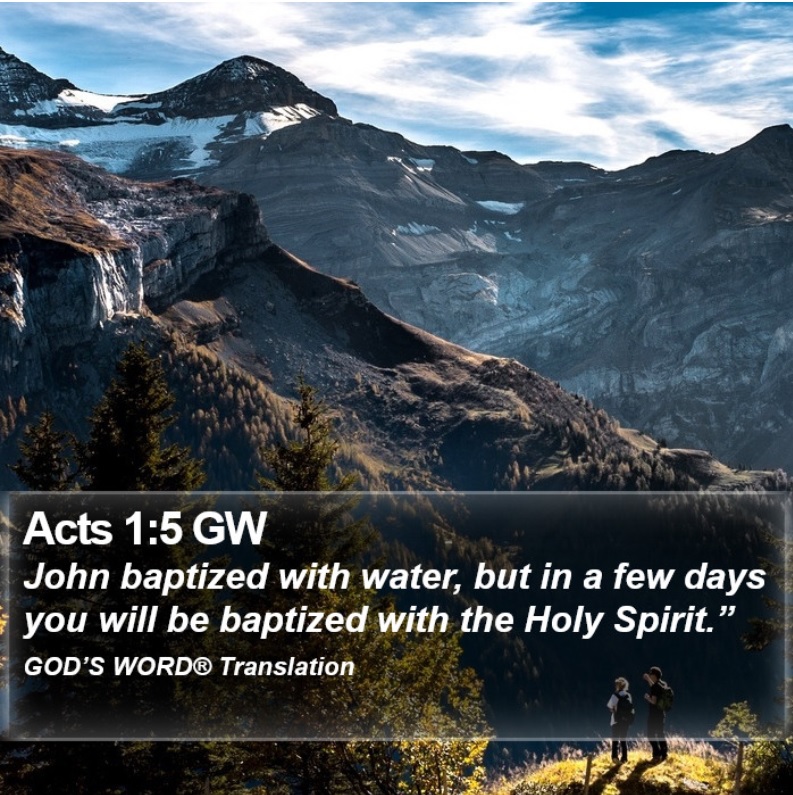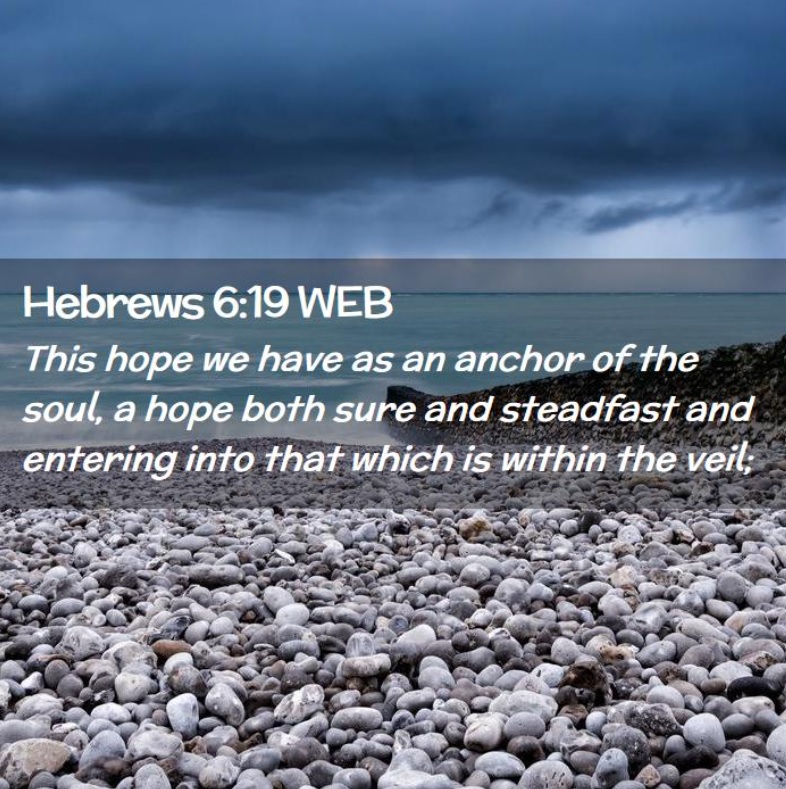“Go therefore and make disciples of all the nations…teaching them to observe all that I commanded you; and lo, I am with you always, even to the end of the age” (Matthew 28:19-20, NASB).
——————–
Contents
1) Holy Spirit Baptism — Just the Facts, Please (Bryan Gibson)
2) Jumping to Conclusions (Gene Taylor)
3) A Living Hope (Jesse A. Flowers)
——————–

-1-
Holy Spirit Baptism — Just The Facts, Please
Bryan Gibson
Much has been written and said about Holy Spirit baptism, sometimes with little concern for what the New Testament actually teaches. We will do our best to stick with the facts in this article.
John the Baptist promised “one mightier than I” would baptize with (“in”—ASV) the Holy Spirit (Matthew 3:11; Mark 1:8; Luke 3:16). That this “one” was Jesus was confirmed to John in a remarkable way: “Upon whom you see the Spirit descending and remaining on Him, this is He who baptizes with the Holy Spirit” (John 1:33). John saw what God described when he baptized Jesus (John 1:32; Matthew 3:13-17), and so he knew for sure Jesus was the One who would baptize with the Holy Spirit.
Here is where we need to be careful. We might assume Jesus baptized people with the Holy Spirit on a regular basis, but we only find two instances in the New Testament specifically described as Holy Spirit baptism.
First, Jesus promised the apostles He would baptize them with the Holy Spirit (Luke 24:49; Acts 1:4-5, 8). He specifically told the apostles to wait in Jerusalem until they received this promise, which is exactly where Jesus baptized them with the Holy Spirit (Acts 2:1-4, 33).
Jesus baptized the apostles with the Holy Spirit to give them power for their work as His witnesses (Acts 1:8; 4:33). They were empowered in basically two different ways. First, the Holy Spirit revealed all truth to them (John 14:26; 16:13), so that what they spoke and what they wrote was inspired of God. Secondly, they were empowered to perform miracles, in order to confirm that what they were teaching came from God (Acts 14:3; Mark 16:20).
We have one other example specifically called Holy Spirit baptism in the New Testament—a Gentile named Cornelius and his household (Acts 10:44-48; 11:15-18). That this was an unusual event can be seen in Peter’s recount of the event: “And as I began to speak, the Holy Spirit fell upon them, as upon us at the beginning” (Acts 11:15). A unique event for sure, because for Peter to find the same thing that happened here, he had to go all the way back to the time when the apostles were baptized with the Holy Spirit (“at the beginning”).
Cornelius and his household were baptized with the Holy Spirit for a special purpose: to convince the Jews God made no distinction between them and the Gentiles, to show that Gentiles could be saved through Jesus Christ—without having to be circumcised and keep the law of Moses (Acts 11:17-18; 15:5-11). It had this very effect on the Jews in Jerusalem when Peter told them what happened: “Then God has also granted to the Gentiles repentance to life” (Acts 11:18).
Baptism with the Holy Spirit is not something we should seek today—in fact, it was not even sought by the people cited in the examples above. It had a unique purpose for the apostles and for Cornelius and his household. We don’t need it for the reasons the apostles did, because all truth has been revealed and confirmed. And we certainly don’t need it for the reason it was given to Cornelius and his family, because we can learn the same lesson from what happened to them (which is the way it was used in Acts 15). The “one baptism” of Ephesians 4:5 is water baptism, and it is necessary for the remission of sins (Acts 10:47-48; 2:38; 8:35-39). Holy Spirit baptism was a promise, fulfilled only in certain individuals; water baptism is a command everyone must obey.
— Via Plain Words from God’s Word, May 15, 2024
——————–

-2-
Jumping To Conclusions
Gene Taylor
A few weeks ago I attended a musical put on by one of our local high schools. I went because my son had done some video work for it, one of the young people from church was in it, and, frankly, I enjoy musicals. I was enjoying this one. I was pleasantly surprised at the professionalism demonstrated by these students. I recalled my high school days and the productions we put on and they in no way compared to the expertise these young people displayed. So I was having a good time.
Everyone else seemed to be enjoying it too. The auditorium was filled and the applause was thunderous — except for the woman sitting next to me. I don’t remember when I first noticed it but she was not applauding at all. While the rest of the audience was gleefully putting their hands together, she just sat there quietly.
I consciously watched her the next time applause rang out. Again, she didn’t so much as move or acknowledge the performance in any way. I thought to myself, “Why did you come if you were going to just sit there? Don’t you realize these young people need to be encouraged when they do good, worthwhile things?”
It became a distraction to me. My enjoyment was greatly diminished. In reality, not only was I distracted, I was becoming angry at this woman. “Perhaps,” I thought, “she is jealous — grudging these young people their youth and talents.” “Maybe she thinks she is better than everyone else and that all this is beneath her.” I carried such thoughts to intermission.
When I stood to stretch, so did she. Then she turned around. It was then I knew the truth — she had only one hand. She could not have applauded even if she desperately wanted to. I felt stupid. I was glad I had not shared my feelings with anyone else. I was ashamed.
I wondered, “How many times have I jumped to conclusions about other people when I did not know the truth of their situation?” Our Lord told us we should not be quick to judge others (Matt. 7:1-2) but I had “jumped in with both feet.” I was the self-centered one. I was the one who lacked sensitivity and understanding. I asked the Lord to forgive me. I smiled at the lady and said, “Good play, huh?” She replied, “It’s wonderful! I am really enjoying it.” Now, putting aside my selfishness, I could too.
Throughout our lives, as we live them for Christ, let us not be quick to judge others and impugn their motives. Only God knows their hearts (Acts 1:24). Let us let Him judge in matters of the heart.
— via Viewpoint from the Valley Grove church of Christ, October 30, 2022
——————–

-3-
A Living Hope
Jesse A. Flowers
“Blessed be the God and Father of our Lord Jesus Christ, who according to His abundant mercy has begotten us again to a living hope through the resurrection of Jesus Christ from the dead, to an inheritance incorruptible and undefiled and that does not fade away, reserved in heaven for you” (1 Peter 1:3-4).
Praise be to God our Father for His abundant mercy to us in that He has granted us a living hope! This “living hope” was made certain by the resurrection of Jesus Christ from the dead (cf. Acts 2:22-32). Jesus is the reason why our hope is “living” and not dead. We serve a risen Savior who is presently reigning over all things as He is seated at the right hand of the throne of God.
This living hope is accessed by means of our being born again. Jesus taught that we must be born again of water and the Spirit (John 3:3-5) to enter the kingdom of God. We were born again through the word of God (1 Peter 1:23; John 8:32) which the Holy Spirit revealed through the apostles and prophets (Eph. 3:1-5) and receiving that word through faith we were baptized into Christ (through water) for the remission of our sins (Acts 2:38; 1 Peter 3:20-21).
Our brother Peter then speaks of those who have been born again to a living hope obtaining an inheritance (received by those born into the family of God). Please notice that the apostle describes our inheritance as being imperishable, undefiled, will not fade away, and reserved in heaven – for you!
The original recipients of Peter’s letter needed to hear this encouraging and reassuring message because of the fiery trial that they were experiencing. And the people of God today need to hear (loud and clear) this same great divine message as we are grieved and distressed by various trials. We need to hold fast to our living hope! We need to praise God for His great mercy! And we need to ever press towards that eternal inheritance that awaits us in heaven!
— Via Articles from the Knollwood church of Christ, April 2024
——————–
The Steps That Lead to Eternal Salvation
1) Hear the gospel — for that is how faith comes (Rom. 10:17; John 20:30-31).
2) Believe in the deity of Jesus Christ, the Son of God (John 8:24; John 3:18).
3) Repent of sins. For every accountable person has sinned (Romans 3:23; Romans 3:10), which causes one to be spiritually dead (Ephesians 2:1) and separated from God (Isaiah 59:1-2; Romans 6:23). Therefore, repentance of sin is necessary (Luke 13:5; Acts 17:30). For whether the sin seems great or small, there will still be the same penalty for either (Matt. 12:36-37; 2 Cor. 5:10) — and even for a lie (Rev. 21:8).
4) Confess faith in Christ (Rom. 10:9-10; Acts 8:36-38).
5) Be baptized in water for the remission of sins (Mark 16:16; Acts 2:38; 22:16; 1 Pet. 3:21). This is the final step that puts one into Christ (Gal. 3:26-27). For from that baptism, one is then raised as a new creature (2 Cor. 5:17), having all sins forgiven and beginning a new life as a Christian (Rom. 6:3-4). For the one being baptized does so “through faith in the working of God” (Col. 2:12). In other words, believing that God will keep His word and forgive after one submits to these necessary steps. And now as a Christian, we then need to…
6) Continue in the faith by living for the Lord; for, if not, salvation can be lost (Matt. 24:13; Heb. 10:36-39; Rev. 2:10; 2 Pet. 2:20-22).
——————–
Tebeau Street
CHURCH OF CHRIST
1402 Tebeau Street, Waycross, GA 31501
Sunday: 9 a.m. Bible Classes and 10 a.m. Worship Service. Congregational Song Service: 5 p.m. for every first Sunday of the month.
Wednesday: 7 p.m. Bible Classes
evangelist/editor: Tom Edwards (912) 281-9917
Tom@ThomasTEdwards.com
https://thomastedwards.com/go/all.htm (This is a link to the older version of the Gospel Observer website, but with bulletins going back to March 4, 1990.)